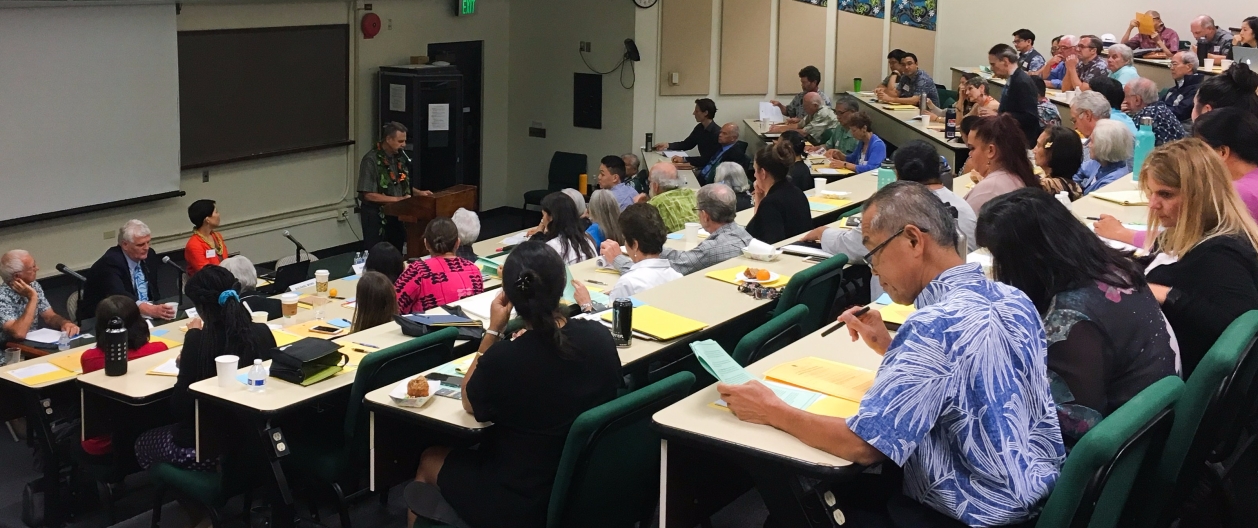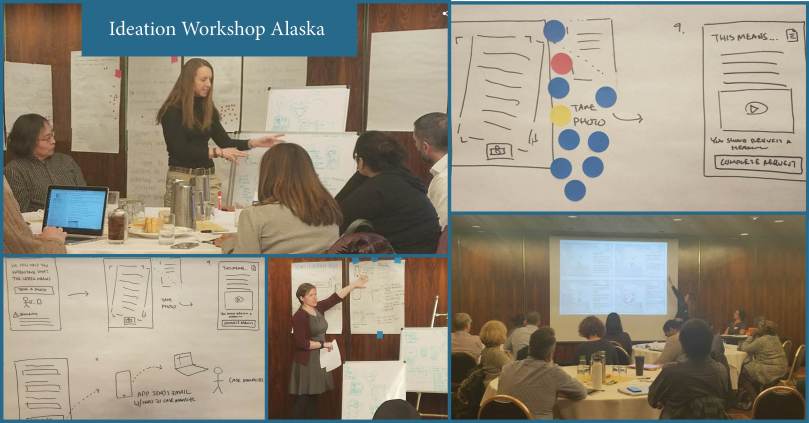Author: David A. Heiner, Microsoft Corporation
We live in a highly legalistic society, and we have no shortage of lawyers. But the allocation of lawyers to the range of legal problems people face is, to put it mildly, uneven. Those with money can hire lawyers, and those without cannot. Without a lawyer, people are left to navigate our complex legal system on their own. This hits working-class people hard, and can be devastating for low-income people, who may face the loss of a job, or a home, or even custody of their children, if they are unable to represent themselves effectively.
One challenge people face is simply finding accurate information relating to their legal problem. Legal aid resources are highly fragmented and legal rules and procedures vary from state to state and even county to county. Simple web searches often fail to yield accurate information regarding the particular legal situation someone is confronting. This is why legal aid leaders and technologists came together in 2014, under the guidance of the Legal Services Corporation (LSC), to ask whether technology could help address this challenge. They imagined a web service that, through a pre-programmed script, would ask users questions and, on the basis of their answers, direct them to the right legal resources.
Fast forward just a couple of years — technology moves fast! — and we could imagine a system that would largely dispense with the pre-programmed scripts, enabling richer, more natural, and ultimately far more helpful interactions with users. We could imagine a system that would enable people to describe the problem they are facing in their own words, a system that would understand the user’s meaning (and not simply look for keywords, like a search engine), a system that could learn from interactions with users how best to help them navigate the legal system. The magic ingredient: Artificial intelligence (AI).
Our eagerness to explore whether AI could help people who cannot afford a lawyer is why Microsoft and Pro Bono Net partnered with LSC in 2016 to build an AI-based “Legal Navigator.” Since then we’ve enlisted the Pew Charitable Trusts and Avanade to join the effort, partnered closely with legal aid and court personnel in our pilot states, Alaska and Hawaii, learned from focus groups with potential users, and developed a prototype of the system.
Today we’re pleased to announce a significant milestone in the development of Legal Navigator: The machine learning system that will power Legal Navigator is complete. Drawing on recent advances in natural language processing, Legal Navigator will provide a chatbot-like interface that will enable people to engage in conversation with the system and be directed to the right legal resources for the situation they face. Like other AI-based systems, Legal Navigator will get “smarter” the more it is used. Over time the system will even learn to understand colloquialisms and slang. And the more it is used, the better it will get at referring people to pertinent online information, to legal aid providers and to self-help systems where users can prepare their own legal filings.
For me, the most exciting aspect of this system is that it is designed as a platform that can benefit the entire legal aid community. The system is “extensible,” meaning that anyone (courts, legal aid providers, online legal document assembly providers) can plug in to add new capabilities to the system and enable a complete solution for users. (In addition to programmatic access through well-defined programming interfaces, the heart of the system — the AI that powers it — is available as open source on GitHub, one of the leading sites for open-source software development projects.) And, like other cloud-based technology platforms, the system is highly scalable. At relatively low cost, the system could be deployed in dozens of states or every state (and as more people used it, that would make the system smarter still).
Of course, we’re a long way from that today. But the AI module is complete, and our partners will now begin the next phase to prepare the product for initial testing in Alaska and Hawaii. Microsoft will continue to support the project as it moves forward by providing $100,000 in grants to be spent over the next two years on additional technical assistance for Legal Navigator.
It will be fascinating to learn how an AI-based solution can help people navigate the legal system. If you are in the legal aid community, please stay in touch with this project so we can collectively explore how best to deploy technology to address the access to justice gap.
Heiner also chairs the board at Pro Bono Net, a national nonprofit dedicated to leveraging the power of technology and collaboration to bridge the justice gap.





 Participants in the Ideation Workshops included local community members who had either experienced legal needs themselves, or who are frequently sought out as “navigators” for others in their community seeking legal help. Additional participants included members of the national project team, and representatives from the Alaska Court System and Justice for All project, Alaska Legal Services Corporation, United Way / 211, the Alaska public library system and the Alaska Native Tribal Health Consortium, among other groups. Organizational participants in Hawaii included the Legal Aid Society of Hawaii, Family Court on Oahu and Aloha United Way / 211.
Participants in the Ideation Workshops included local community members who had either experienced legal needs themselves, or who are frequently sought out as “navigators” for others in their community seeking legal help. Additional participants included members of the national project team, and representatives from the Alaska Court System and Justice for All project, Alaska Legal Services Corporation, United Way / 211, the Alaska public library system and the Alaska Native Tribal Health Consortium, among other groups. Organizational participants in Hawaii included the Legal Aid Society of Hawaii, Family Court on Oahu and Aloha United Way / 211. The first day of each workshop drew on personal stories shared by these individuals to prioritize key user needs and wants in the Legal Access Platform. During the second day, designers from Fell Swoop, a user experience design firm, assisted small groups in storyboarding examples of how people might access the Platform and engage with resources available on it to find solutions to their legal problems.
The first day of each workshop drew on personal stories shared by these individuals to prioritize key user needs and wants in the Legal Access Platform. During the second day, designers from Fell Swoop, a user experience design firm, assisted small groups in storyboarding examples of how people might access the Platform and engage with resources available on it to find solutions to their legal problems. Similar to Alaska, Hawaii, with one large urban center in Honolulu, on the island of Oahu, and the rest of the population spread among the other seven islands, experiences geographic and infrastructure challenges to traditional modes of legal services delivery. Like Alaska, the justice community in Hawaii has developed some key strengths to compensate for these challenges:
Similar to Alaska, Hawaii, with one large urban center in Honolulu, on the island of Oahu, and the rest of the population spread among the other seven islands, experiences geographic and infrastructure challenges to traditional modes of legal services delivery. Like Alaska, the justice community in Hawaii has developed some key strengths to compensate for these challenges: Did you know that if superimposed on the lower 48 states, Alaska would stretch from San Francisco, CA to Jacksonville, FL? The municipality of Anchorage is about the size of Delaware alone, and many of the smaller towns and Native Alaskan villages have less than 250-300 residents with no direct road system to connect them. Very few rural communities have lawyers or courts, and some communities in urban centers such as Anchorage and Fairbanks face high unemployment and poverty.
Did you know that if superimposed on the lower 48 states, Alaska would stretch from San Francisco, CA to Jacksonville, FL? The municipality of Anchorage is about the size of Delaware alone, and many of the smaller towns and Native Alaskan villages have less than 250-300 residents with no direct road system to connect them. Very few rural communities have lawyers or courts, and some communities in urban centers such as Anchorage and Fairbanks face high unemployment and poverty.